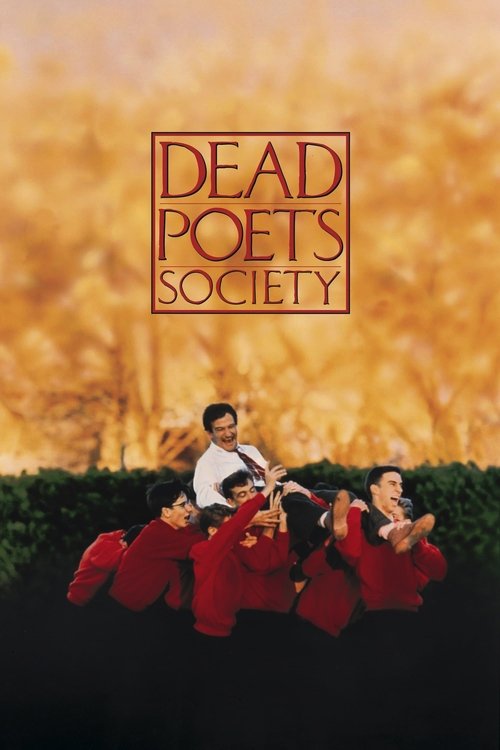
Title: Dead Poets Society
Year: 1989
Director: Peter Weir
Writer: Tom Schulman
Cast: Robin Williams (John Keating),
Robert Sean Leonard (Neil Perry),
Ethan Hawke (Todd Anderson),
Josh Charles (Knox Overstreet),
Gale Hansen (Charlie Dalton),
Runtime: 128 min.
Synopsis: At an elite, old-fashioned boarding school in New England, a passionate English teacher inspires his students to rebel against convention and seize the potential of every day, courting the disdain of the stern headmaster.
Rating: 8.302/10
Seizing the Verse: The Fragile Fire of Dead Poets Society
/10
Posted on June 6, 2025
Peter Weir’s Dead Poets Society (1989) is a film that burns with the quiet ferocity of youth confronting conformity. Set in the rigid halls of Welton Academy, it’s less a coming-of-age tale than a battle cry for individuality, delivered through the lens of poetry and the transformative power of a teacher who dares to awaken. Weir, with his deft hand for emotional nuance, crafts a work that’s both a love letter to art and a warning of its costs, a film that lingers like a half-remembered poem.
Robin Williams, as English teacher John Keating, is the film’s heartbeat, wielding charisma and vulnerability with surgical precision. His performance is a tightrope walk part sage, part rebel infusing lines like “carpe diem” with a sincerity that transcends their now-iconic status. He’s not just teaching poetry; he’s teaching life, urging his students to “suck the marrow” from it. The young ensemble, led by Ethan Hawke’s shy Todd Anderson and Robert Sean Leonard’s tortured Neil Perry, delivers raw, lived-in performances. Hawke’s quiet unraveling and Leonard’s desperate yearning carry the weight of adolescence, though some supporting characters, like the bullish Cameron, feel thinly drawn, serving as foils rather than fully realized souls.
Tom Schulman’s screenplay is both the film’s triumph and its Achilles’ heel. Its dialogue crackles with literary reverence Keating’s lessons feel like sermons without preaching but it occasionally leans too heavily on idealism, risking sentimentality. The film’s structure, while tight, can feel predictable, especially in its tragic arc, which, while powerful, follows a well-trodden path. Yet, it’s this very predictability that amplifies the emotional gut-punch, making the inevitable feel unbearable.
Cinematographer John Seale paints Welton’s autumnal campus with a warmth that contrasts its cold authority. The visuals golden leaves, candlelit caves evoke a romanticism that mirrors the boys’ awakening, though the film’s polished aesthetic can sometimes feel too pristine, softening the era’s grit. Maurice Jarre’s score, subtle yet stirring, underscores the emotional crescendos without overwhelming them, though it lacks the distinctiveness to linger beyond the screen.
Where Dead Poets Society stumbles is in its occasional oversimplification of rebellion versus tradition, painting authority figures like Headmaster Nolan as near-caricatures. Yet, its power lies in its refusal to offer easy answers. It celebrates the fire of self-expression but doesn’t shy away from its consequences Neil’s fate is a haunting reminder that not every spark survives the system. This is a film that doesn’t just inspire; it challenges you to question what you’d stand for, and what you’d stand on. Flawed but fierce, it’s a call to seize your own verse.
0
0
